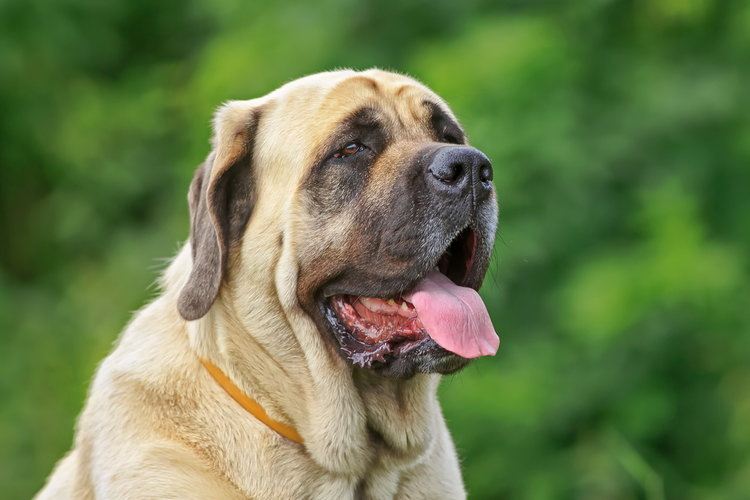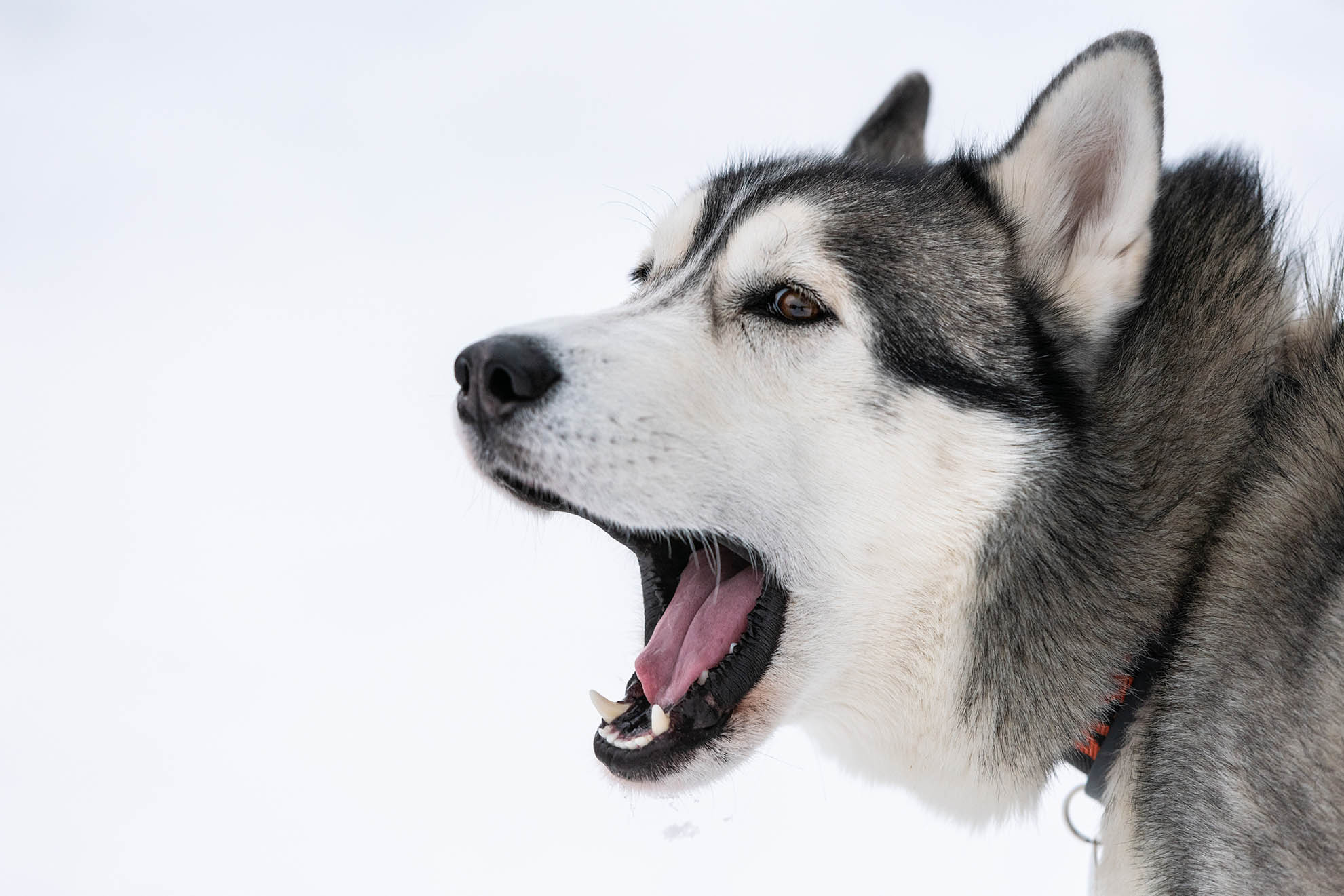When Do German Shepherds Stop Teething? Breed Facts & FAQs

Updated on
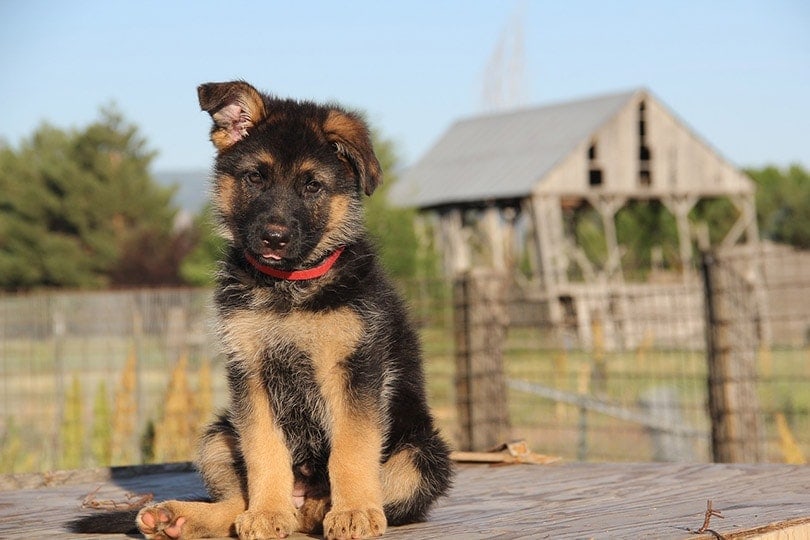
Teething represents a major landmark for your German Shepherd puppy, but the process can be very annoying since it often results in destroyed shoes, furnishings, and other items around your home. Luckily, you don’t have to put up with this teething process for too long.
German Shepherd puppies start teething whenever their puppy teeth start to grow in. Once the puppy is around 6 to 8 months old, most of their puppy teeth will fall out and all of their adult teeth will come in replacement. At this point, your German Shepherd will likely stop teething.
Read on to learn more about what to expect about your German Shepherd’s teething time.
When Do German Shepherds Start Teething?
Just like human babies, German Shepherd puppies are born without teeth. Once the puppy reaches 3 weeks old, they may start to grow in their milk teeth. All of their puppy teeth, including puppy canines and incisors, should be grown in by the end of the 8th week.
At this point, your German Shepherd will likely start teething, though it might start teething slightly sooner. Although some German Shepherd puppies’ milk teeth grow in within 2 weeks, it’s more likely for teething to start around the 3- or 4-week period.
One of the first signs that your German Shepherd puppy is teething is finding small amounts of blood on your carpet or dog toys. This is a completely normal event because the blood is often due to the loose baby teeth or the baby teeth falling out completely.
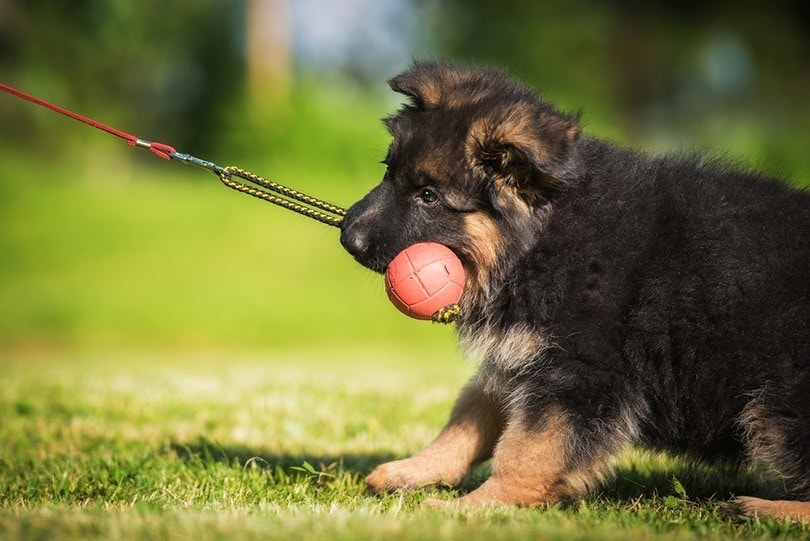
What You Can Do to Help Teething German Shepherds
Whenever your German Shepherd starts teething, it’s a great idea to get German Shepherd teething toys. Kong chew toys are great choices because they are durable but won’t hurt your German Shepard either.
Make sure not to give your German Shepherd rawhide chews because these chews are dangerous for dogs and often lead to choking, especially in puppies. Special toys specifically made for teething puppies are best.
During the teething time, German Shepherds are very likely to become destructive. Provide your German Shepherd a whole lot of exercise and additional toys to keep them entertained. Not only will this keep their minds off the teething process, but it will prevent them from destroying your home.
How Do I Know When My German Shepherd Is Teething?
First time dog owners don’t truly know what to expect from the teething period.
- Small baby teeth are emerging and can be found on the floor, in a toy, or in the food bowl.
- There are small blood spots on your carpet or on toys.
- Your puppy is drooling a lot more than usual.
- You notice your puppy chewing more than usual.
- The puppy’s gums may become inflamed, red, and sore.
- Your puppy may act like it is in slight pain and have a slight fever.
- Their teeth look misaligned.
If you notice one or more of these events happening, your German Shepherd is likely teething. The best thing you can do is provide your dog teething toys and a lot of exercise. Aside from that, allow nature to do its job by letting the teeth fall and the adult teeth to come in.
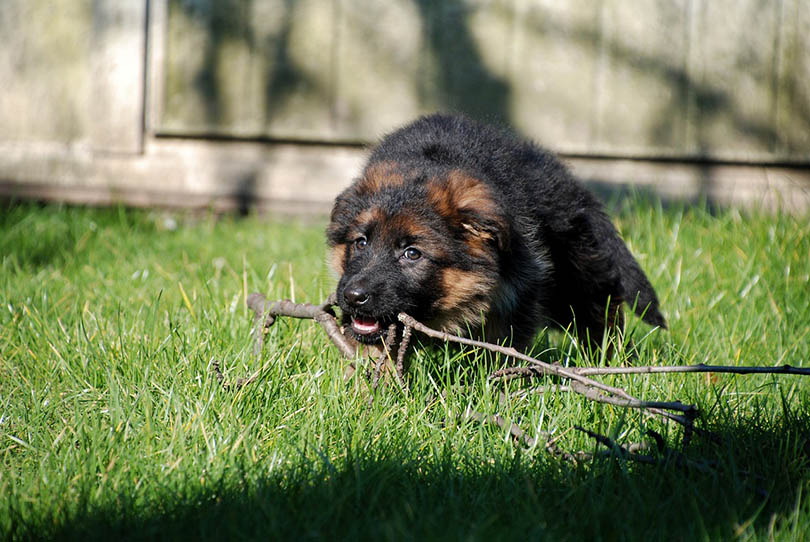
Why Do German Shepherds Teeth?
Teething is a common occurrence in many baby animals, but you might not be sure why they teeth and chew up things in the first place. Well, when puppies are first born, they don’t have any teeth.
Whenever those baby teeth start to grow in, the process can be painful since the teeth have to come through the gums. The pain continues as baby teeth fall out and adult teeth replace them. German Shepherd puppies, as well as other babies, will teeth in order to ease the pain.
When Do German Shepherds Lose Their Baby Teeth?
It normally takes about three months or 12 weeks for your German Shepherd to lose all of their baby teeth. During this time, the 28 baby teeth will fall out and 32 adult teeth will grow in instead.
Once all of the German Shepherd’s baby teeth are gone, teething may slow down, but it will likely continue a little bit longer until the German Shepherd is comfortable with all of their adult teeth.
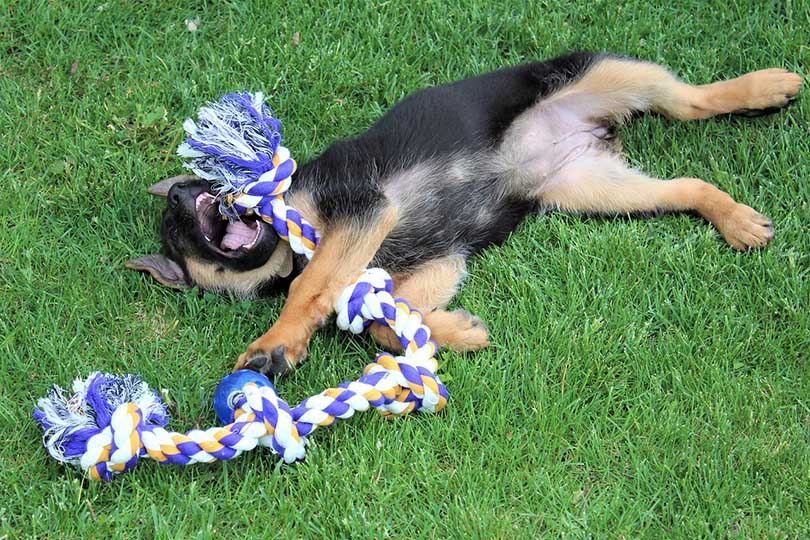
When Do German Shepherds Stop Teething?
Although the exact amount of time it takes for German Shepherds to stop teething varies from dog to dog, most puppies stop teething whenever they are between 7 and 8 months old. Some German Shepherds may stop teething as early as 6 months, but the 7 month mark is much more likely.
Protect Your Home
During the teething process, your dog is likely to become destructive from all its chewing. It’s important to protect your home and valuables during this process. Make sure to pick up shoes and other items that your dog might chew up.
Even if the dog is trained, their sore teeth and gums will lead them to chew things as pain relief. Although you still want to train your puppy during this time, be a little more patient if your dog chews up something they shouldn’t. The dog is likely in a bit of pain because of the teething process.
Final Thoughts
German Shepherd puppies will start teething whenever they are a few weeks old. Teething will become a popular occurrence around your home until your dog is at least 6 months old, but teething can last an additional 2 months.
Even though teething can be annoying for us, remember to be patient and understanding with your dog. After all, your German Shepherd puppy is likely in a lot of pain. Try to help the teething process by investing in good teething toys and dog-proofing your home for the time being.
See also:
- German Shepherd Floppy Ears FAQ: The Complete Guide
- What Were German Shepherds Bred For? Breed History Explained
Featured Image Credit: M J, Pixabay


